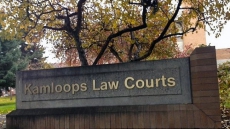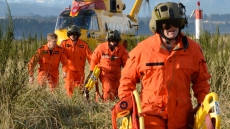OTTAWA — New anti-terror measures introduced Friday by the Conservative government are seen as a direct response to the attacks in October in which two Canadian soldiers were killed by men believed to be influenced by radical Islam.
The Harper government considered both to be acts of terrorism.
In response, they're proposing to give Canada's spy agency greater powers to disrupt potential attacks and also broaden the ability of the RCMP to go after possible suspects.
In recent years, other countries have also introduced legislative reforms to thwart the growing threat of terrorism or in direct response to attacks on their soil.
Here's a look at what some of the measures have been, what precipitated them and what happened after.
France
Last fall, the French government tightened its anti-terrorism legislation because of concerns about the growing number of nationals joining radical causes at home and abroad.
Measures included:
— a travel ban on anyone believed to be travelling to join a terrorist group abroad.
— creation of new offences and new punishments for terrorists believed to be acting alone.
— the power for authorities to block websites that "glorify terrorism" without the intervention of a judge.
In January, two gunman tied to Al Qaeda in Yemen stormed the Paris office of the satirical weekly newspaper Charlie Hebdo, killing 11 people, in apparent retaliation for provocative cartoons published by the paper of the prophet Muhammad.
The two men died in a shoot out with police two days later and a third, who had taken a Jewish supermarket hostage, also died.
The French government is now considering boosting anti-terror measures further, included beefed up surveillance powers.
Australia
In September 2014, security agencies claimed to have foiled a plot by Islamic extremists to carry out executions in Sydney and Brisbane.
The Australian government said it was an example of a growing threat to the country from Islamic radicals affiliated with the ongoing conflicts in Syria and Iraq.
In response, a suite of new laws were introduced last fall.
Measures included:
— making it a crime to advocate terrorism.
— sentences of life in prison for those who travel overseas to engage in hostile activities.
— making it a crime to travel to or stay in an area designated as being of "terrorist activity", with some exceptions for family visits and other legitimate travel.
— require telecommunications companies to retain customer's phone and computer metadata for around two year.
In December 2014, a man with a criminal record for assault and known to have radical views, took 17 people hostage in a Sydney cafe, before being shot and killed by police.
While he was known to security, he wasn't actively being monitored.
Britain
On July 7, 2005, four suicide bombers detonated bombs in the London Underground and on a city bus, killing 52 people and injuring close to 800.
Two of the bombers had made videos ahead of time in which they declared their motivations being linked to radical Islam.
In response, the British government introduced the Terrorist Act of 2006.
New measures included:
— extension of police powers to hold terrorist suspect up to 28 days without charge.
— making it a crime to encourage terrorism by directly or indirectly inciting or encouraging others to commit acts of terrorism.
— creating new offences to allow for the prosecution of anyone who gives or receives training in terrorist techniques.
In 2013, a British soldier was murdered in London by two British men linked to radical Islam. A report into the attack found that security forces were aware of the two men but said they couldn't stop them. A further suite of legislation was introduced late last year as a response.
Proposals include:
— giving police the power to force Internet companies to hand over details that could help identify suspected terrorists.
— banning British citizens suspected of involvement in terrorist activity abroad from coming back into the U.K. for two years.
— requiring named institutions, including colleges and universities, to implement anti-radicalization programs.



-Gauthier.jpg)

